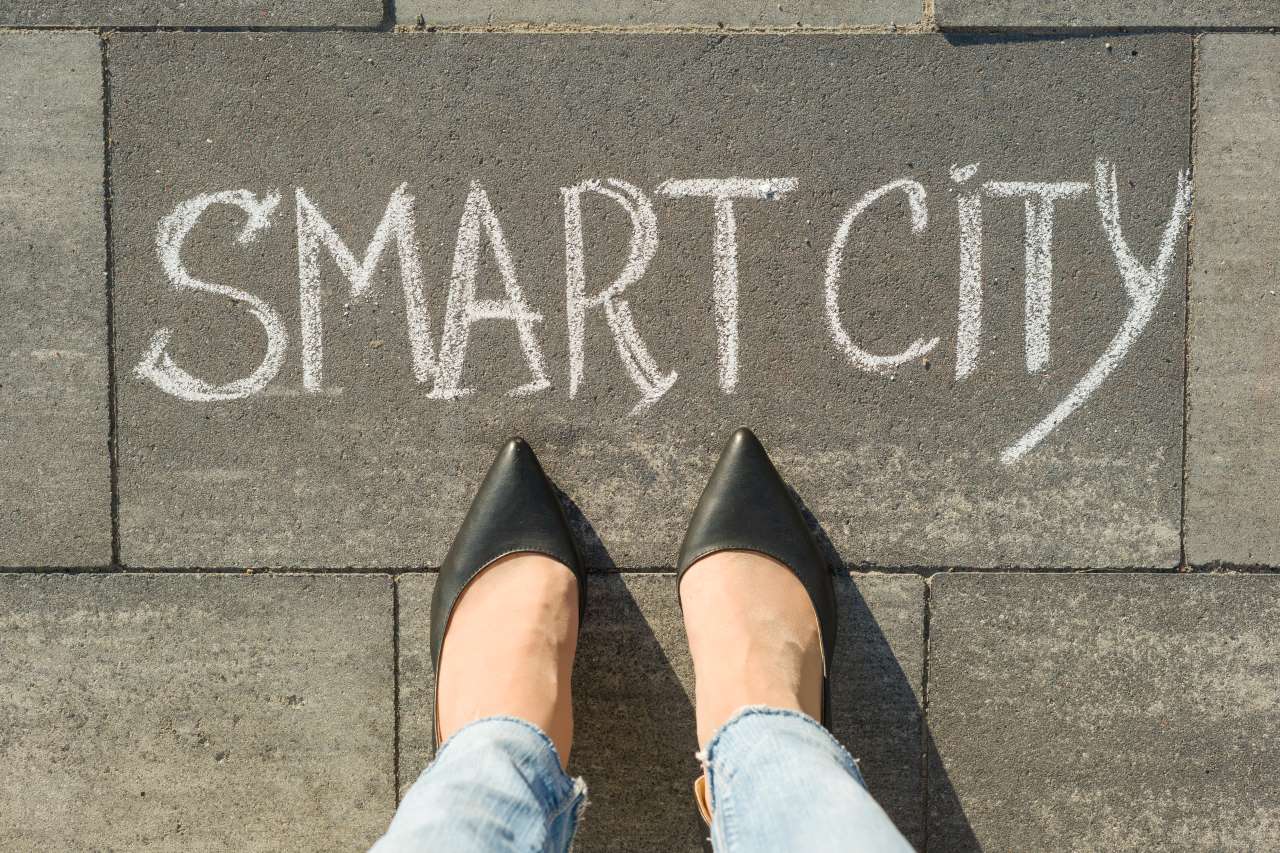
Extended Reality and the Rise of Smart Cities
As our urban landscapes embrace digital transformation and connectivity, the fusion of XR technologies and smart urban environments presents a world of possibilities. XR, encompassing Augmented Reality, Assisted Reality, Virtual Reality and Mixed Reality, merges the physical and digital realms, while smart cities utilise technology to enhance urban life.
The integration of XR in smart cities holds immense promise for urban planning, transportation systems, citizen engagement and more. Imagine walking through a city with digital overlays providing real-time data, or architects immersing themselves in virtual simulations to evaluate designs.
Whether you're a technology enthusiast, urban planner, policymaker, or simply curious about the transformative potential of XR in shaping the cities of tomorrow, Vertical Realities is here to help.
In this blog, we’ll embark on a captivating exploration of Extended Reality and the rise of Smart Cities, where imagination meets innovation, and the boundaries of our urban landscapes are redefined. Let's unlock the limitless possibilities that lie at the intersection of XR and Smart Cities and pave the way for a connected, immersive and sustainable future.
What are Smart Cities?
A smart city is an urban environment that uses advanced technologies and data-driven solutions to improve the quality of life for its residents. These cities leverage interconnected systems and devices to enhance efficiency, sustainability and livability.
Smart cities create connected ecosystems by integrating various domains such as transportation, energy, communication and governance. They use sensors, IoT devices and data analytics to gather and analyse real-time information, which helps optimise resource allocation, traffic management, waste management, and public services.
The ultimate goal of a smart city is to create intelligent, responsive and sustainable urban environments that enhance citizen well-being and foster economic growth.
Introduction to Extended Reality (XR)
Extended Reality (XR) is an umbrella term encompassing Augmented Reality (AR), Assisted Reality (aR), Virtual Reality (VR), and Mixed Reality (MR) technologies. XR offers immersive experiences that blend the physical and digital worlds, thereby creating new realms of interaction and perception.
AR can overlay digital content onto the real world, enhancing our surroundings with contextual information. Assisted Reality (aR) enables users to receive hands-free assistance, improve productivity in work environments, access real-time data overlays, or receive step-by-step instructions for tasks or repairs.
VR creates entirely immersive virtual environments that can transport users to simulated realities. MR combines elements of both AR and VR, allowing digital objects to interact with the physical environment.
Overall, XR has applications in various fields, including gaming, education, healthcare and industrial training. With XR, users can explore new dimensions, unlock creativity, and redefine how we perceive and interact with digital content. If you’re looking to experience the power of XR technology, check out our products here.
The Intersection of Extended Reality and Smart Cities
The intersection of Extended Reality (XR) and smart cities brings together the transformative potential of immersive technologies with the innovative framework of urban development.
XR technologies, including AR, VR and MR, can revolutionise everything we know about smart urban environments. XR in smart cities offers exciting possibilities such as enhanced citizen engagement, immersive urban planning, and improved public services.
By integrating XR, cities can leverage real-time data, spatial visualisations, and interactive simulations to optimise infrastructure management, urban design, and community participation. When XR and smart cities intersect, it opens doors to unprecedented levels of connectivity, efficiency and creativity in shaping the cities of the future.
Advantages and Benefits of Extended Reality in Smart Cities
Extended Reality can be incredibly beneficial to smart cities. It enhances citizen engagement by providing immersive and interactive experiences that foster a deeper connection with the city. Furthermore, it enables virtual urban planning and simulations, allowing stakeholders to visualise and evaluate designs before implementation. This, in turn, leads to more efficient and sustainable development.
XR also improves public services by providing real-time data overlays, enabling citizens to access information about transportation, points of interest, and public facilities seamlessly. Additionally, XR enhances training and education by offering immersive learning experiences that promote skills, development and knowledge acquisition. These are just a few of the advantages that highlight the immense potential of XR in shaping smarter and more livable cities.
What the Future Holds: The Potential of Extended Reality in Shaping Smart Cities
There’s no denying that the future of Extended Reality (XR) in shaping smart cities seems incredibly promising. As XR technologies continue to evolve and become more accessible, they have the potential to revolutionise urban environments.
XR can enhance urban planning by offering immersive visualisations, enabling stakeholders to make informed decisions and create sustainable and people-centric cities. With the integration of XR, citizens can experience personalised and contextually rich environments, transforming the way they interact with public spaces and services.
Furthermore, XR can optimise transportation systems, improve safety, and enhance citizen well-being by providing real-time data and immersive navigation experiences. Overall, the future of XR in smart cities is poised to create transformative, engaging and connected urban environments.
To Experience the Endless Possibilities of Futuristic Technology, Choose Vertical Realities
At Vertical Realties, we possess a profound passion for our work and an unwavering commitment to promoting the remarkable capabilities of XR technology on a global scale. With our highly skilled team, we strive to empower our clients in reaching their maximum potential.
Our comprehensive range of commercial solutions in Assisted Reality (aR), Mixed Reality (MR), and Virtual Reality (VR) is carefully crafted with state-of-the-art technologies, aimed at enhancing productivity, efficiency and training effectiveness.
To explore our exceptional services, you can click here or connect with us directly to discover how we can help you excel in your endeavours.

